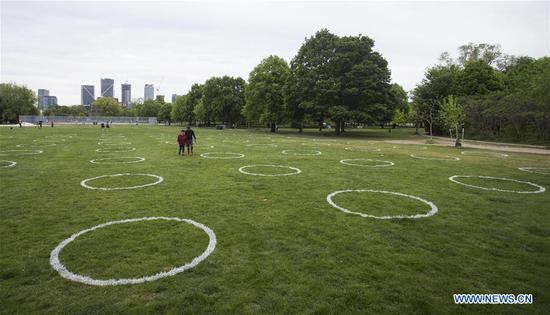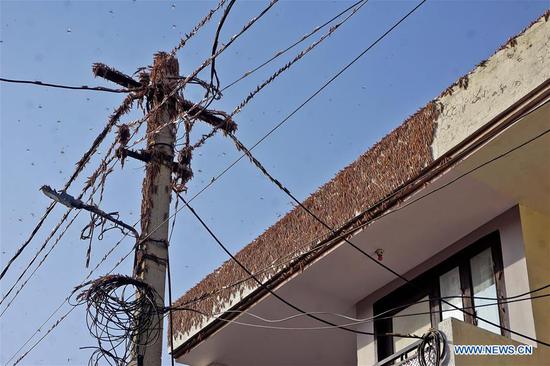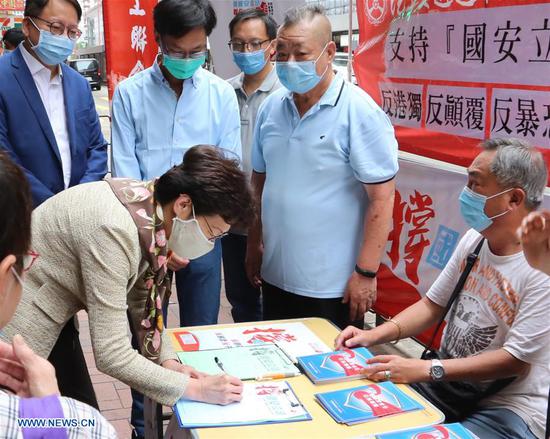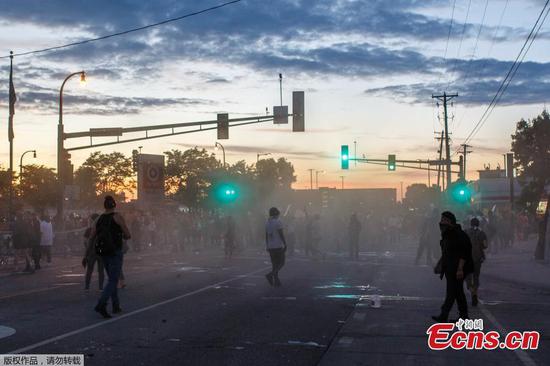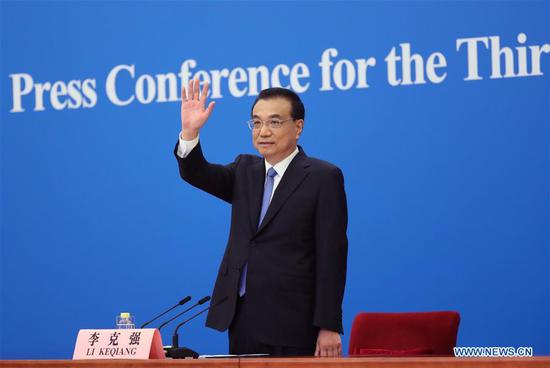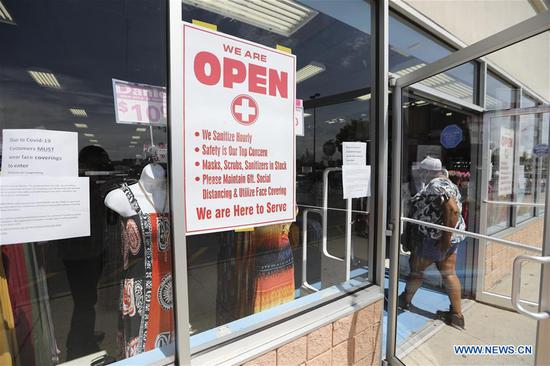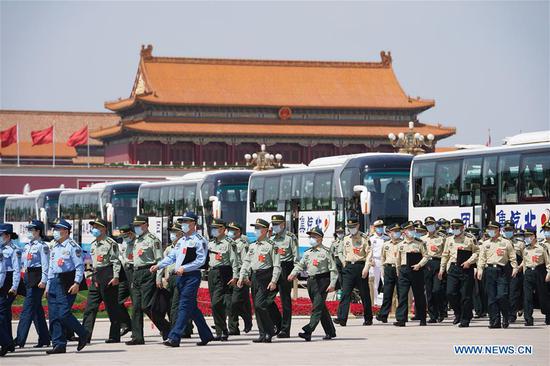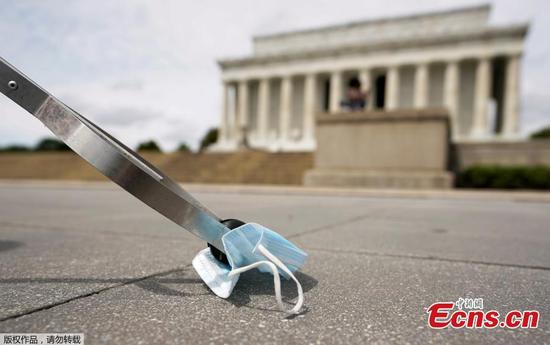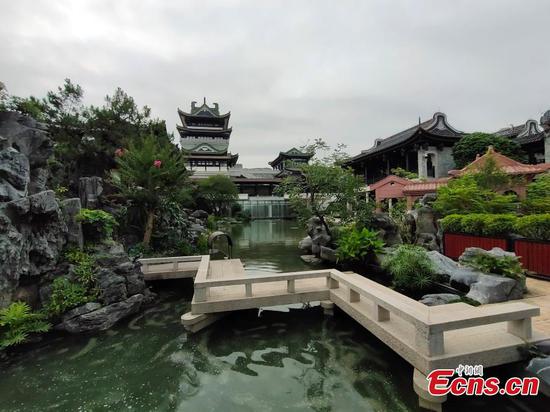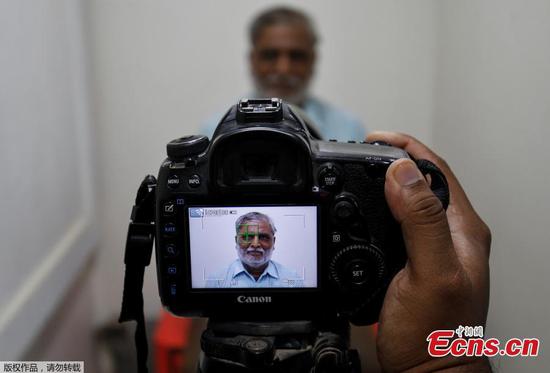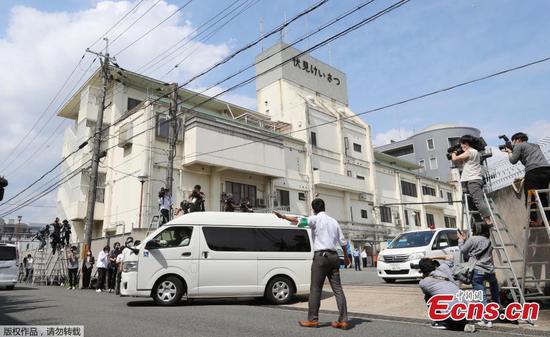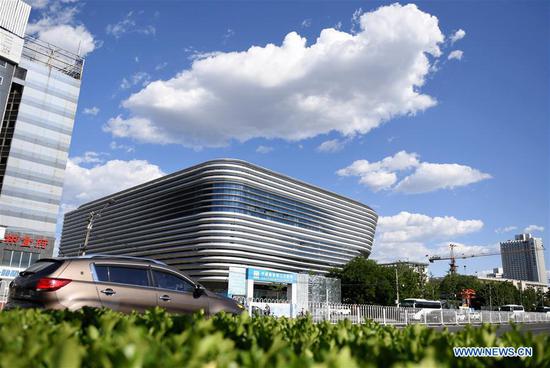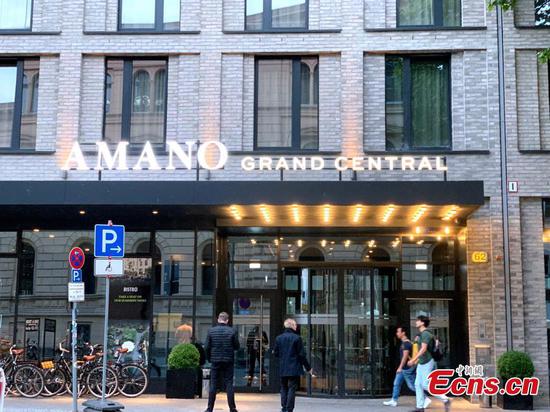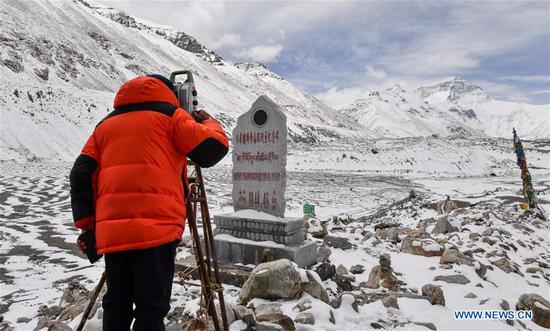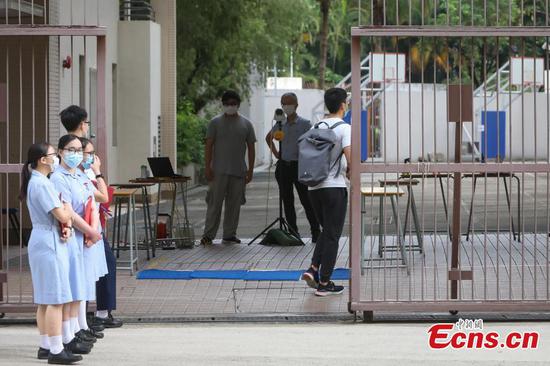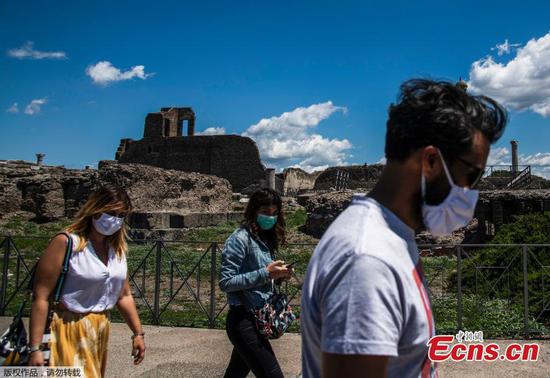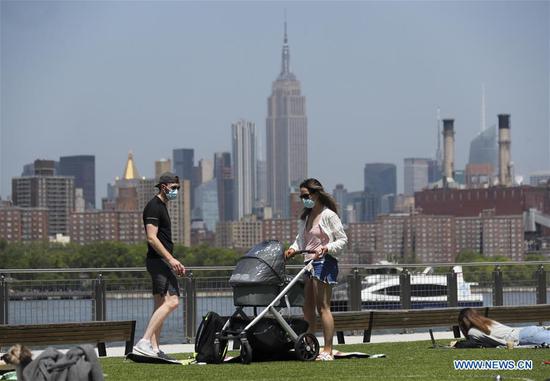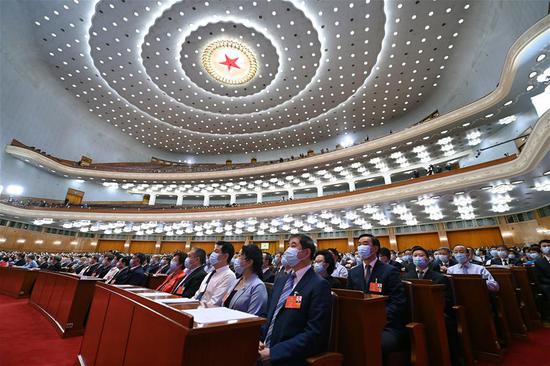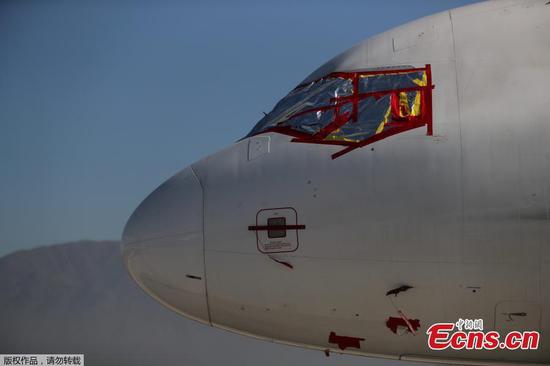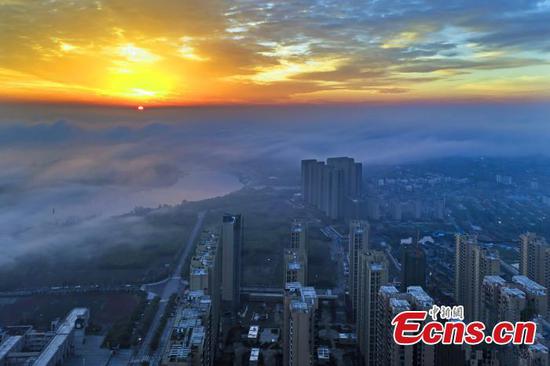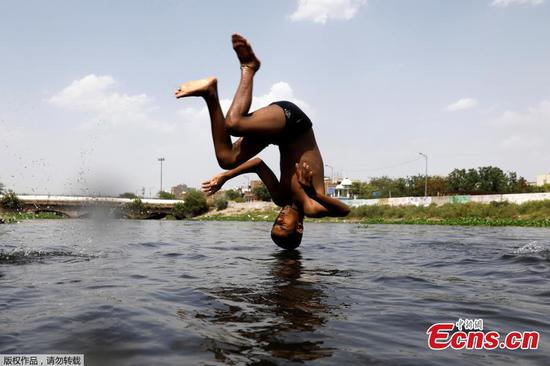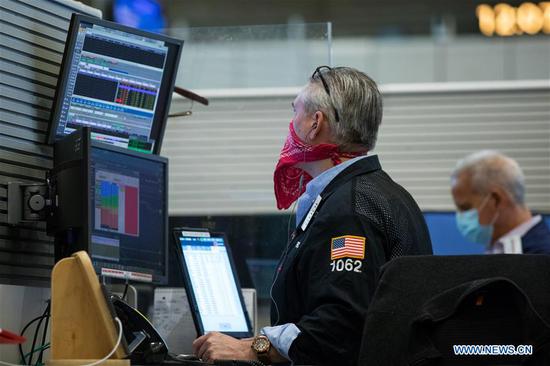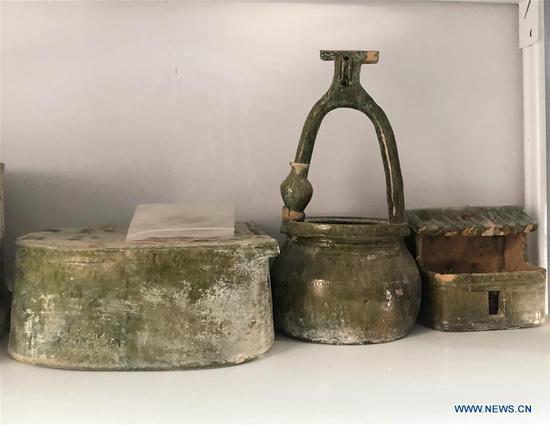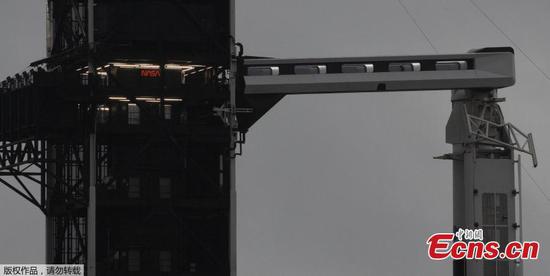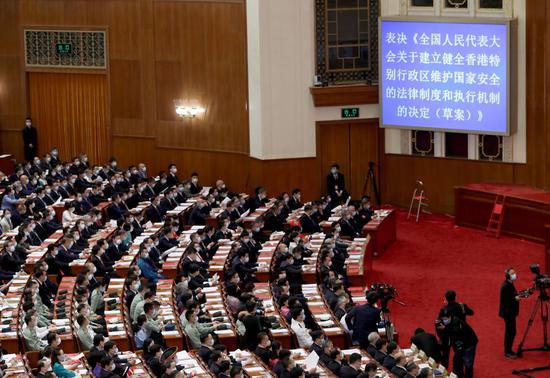
The closing meeting of the third session of the 13th National People's Congress is held at the Great Hall of the People in Beijing, capital of China, May 28, 2020. (Xinhua/Ding Haitao)
China is set to make Hong Kong national security laws as a related decision was adopted at the national legislature on Thursday.
The decision will also allow the central government's national security organs to set up agencies in Hong Kong when needed.
Deputies to the 13th National People's Congress (NPC) voted overwhelmingly to approve the decision at the closing meeting of the NPC annual session.
Rounds of applause erupted in the Great Hall of the People when the decision was passed.
The NPC Decision on Establishing and Improving the Legal System and Enforcement Mechanisms for the Hong Kong Special Administrative Region (HKSAR) to Safeguard National Security consists of an introduction and seven articles.
The decision was made to safeguard national sovereignty, security and development interests, uphold and improve "one country, two systems," safeguard Hong Kong's long-term prosperity and stability, and guarantee the legitimate rights and interests of Hong Kong residents, says the introduction.
Li Zhanshu, chairman of the NPC Standing Committee, said the decision "serves the fundamental interests of all Chinese people including Hong Kong compatriots."
For the next step, the NPC will entrust its standing committee to make national security laws to be promulgated and enforced in Hong Kong.
HKSAR Chief Executive Carrie Lam welcomed the move and said the HKSAR government will fully cooperate with the NPC Standing Committee to complete relevant legislation as soon as possible.
On Thursday, Lam took part in a public campaign in Hong Kong to support the national security legislation. In less than five days, more than 1.85 million Hong Kong residents have signed a petition supporting the legislation.
"NATIONAL SECURITY IS LIKE THE AIR"
The legislative move came after prolonged social unrest and escalating street violence had plunged Hong Kong into the gravest situation since its return to the motherland in 1997.
Hong Kong had witnessed rampant activities of "Hong Kong independence" organizations and violent radicals as well as blatant interference by external forces.
Presenting the draft to the national legislature last week, senior legislator Wang Chen said increasingly notable national security risks in Hong Kong have become a prominent problem.
There are apparent "weak links" in Hong Kong's existing legal system and enforcement mechanisms in safeguarding national security, said Wang, vice chairman of the NPC Standing Committee.
Considering Hong Kong's situation at present, efforts must be made at the state level to establish and improve the legal system and enforcement mechanisms for the HKSAR to safeguard national security, he said.
"National security is like the air. Without it, no one can survive," said Witman Hung, an NPC deputy from the HKSAR. "The NPC decision comes at the right time."
PURVIEW OF CENTRAL AUTHORITIES
Alan Hoo, chairman of the Basic Law Institute in Hong Kong, said national security legislation is a state legislative power no matter a country adopts the unitary or federal system. National security laws can be found in both common law and continental law systems.
Hong Kong, he said, cannot remain unguarded.
In an online article on the issue, Secretary for Justice Teresa Cheng of the HKSAR government said national security is a matter of national interest that concerns the whole population of China and falls squarely within the purview of the central authorities.
Cheng stressed that it is fundamental to recognize that the central authorities hold the ultimate responsibility for national security in all local administrative regions.
TINY NUMBER OF "TROUBLEMAKERS" TARGETED
The decision says the country will prevent, stop and punish acts and activities endangering national security. The country will also resolutely oppose the interference in Hong Kong affairs by any foreign or external forces in any form and will take necessary countermeasures, it adds.
Tam Yiu-chung, a member of the NPC Standing Committee, said the legislation does not target the ordinary Hong Kong residents but "a tiny number" of people suspected of endangering national security.
Illegal activities particularly mentioned include splitting the country, subverting state power, organizing and carrying out terrorist activities, as well as interfering in Hong Kong affairs by foreign and external forces.
The law-based freedom of speech, freedom of the press, freedom of assembly enjoyed by Hong Kong residents will not be disturbed, their daily lives will not be affected, and the security of their property will continue to be protected, Tam said.
"ONE COUNTRY, TWO SYSTEMS" NOT CHANGED
Under "one country, two systems," Hong Kong, as a special administrative region of China, has a high degree of autonomy and retains its own capitalist system and lifestyle.
Speaking to the press after the legislative session, Chinese Premier Li Keqiang said "one country, two systems" is China's basic state policy, and the decision is designed for the policy's steady implementation.
Chief Executive of the Hong Kong Monetary Authority Eddie Yue said the legislation will not bring any change to the fundamentals of Hong Kong's monetary and financial system.
The free flow of capital and free convertibility of the Hong Kong dollar will continue to be safeguarded by the Basic Law of the HKSAR, Yue said.
Neither will the legislation change Hong Kong's legal system.
"Under the Basic Law, judicial independence is guaranteed, and this will continue as before," said Grenville Cross, former director of public prosecutions of Hong Kong.










